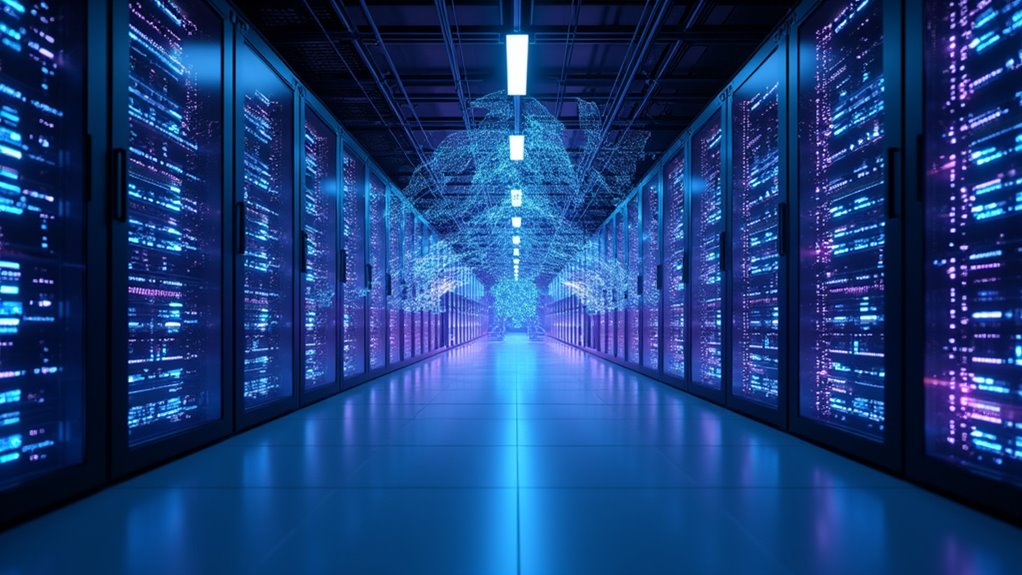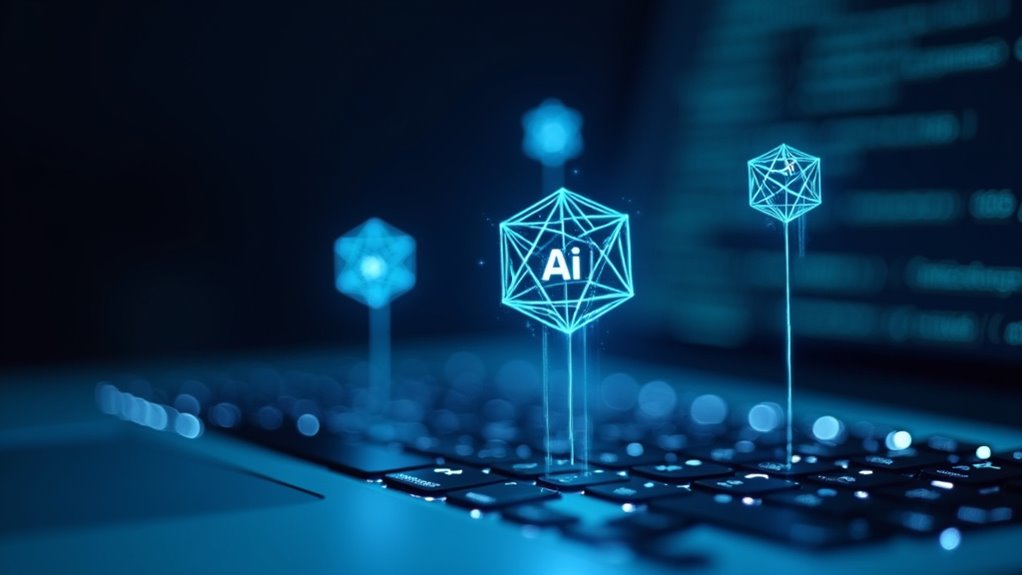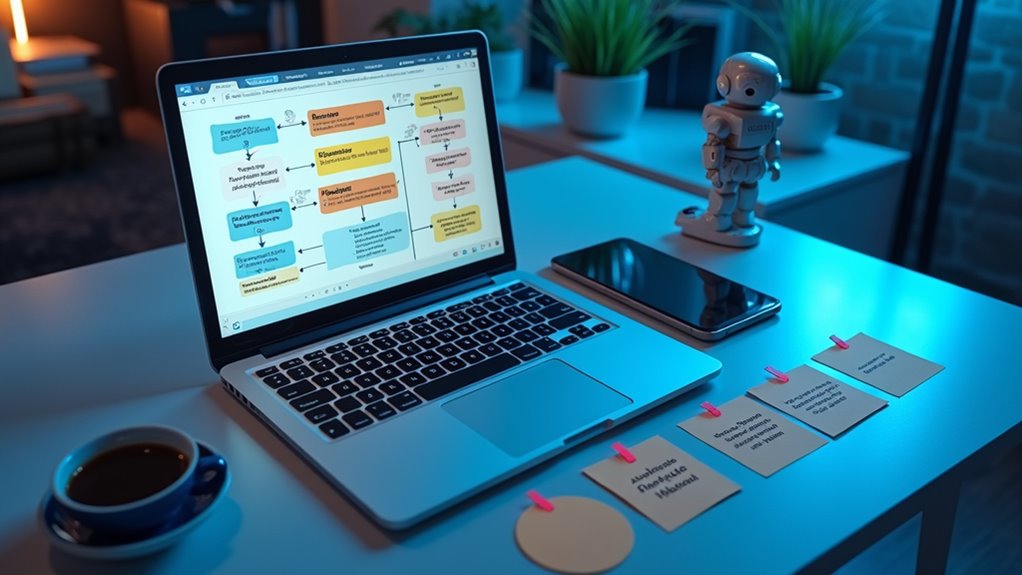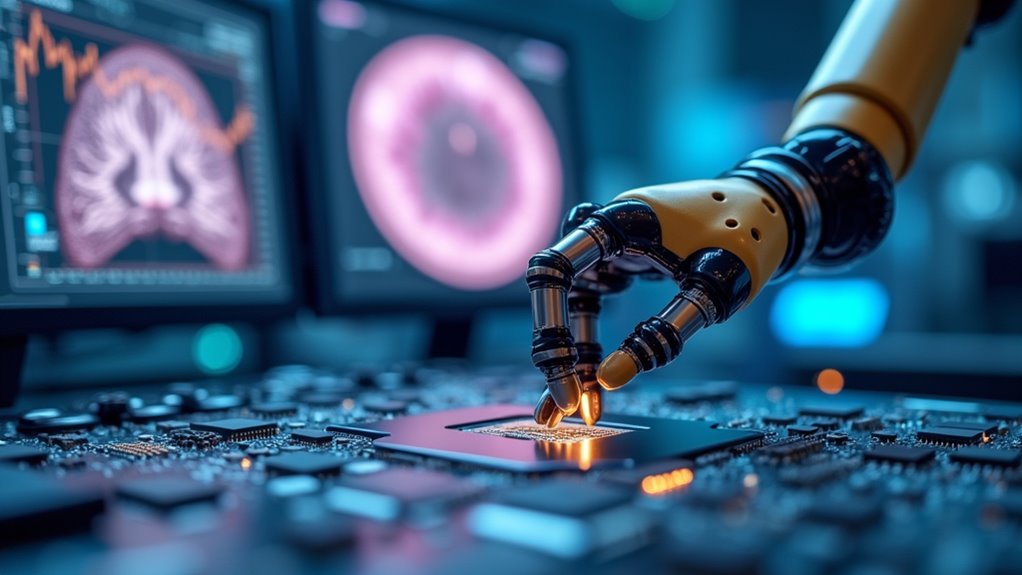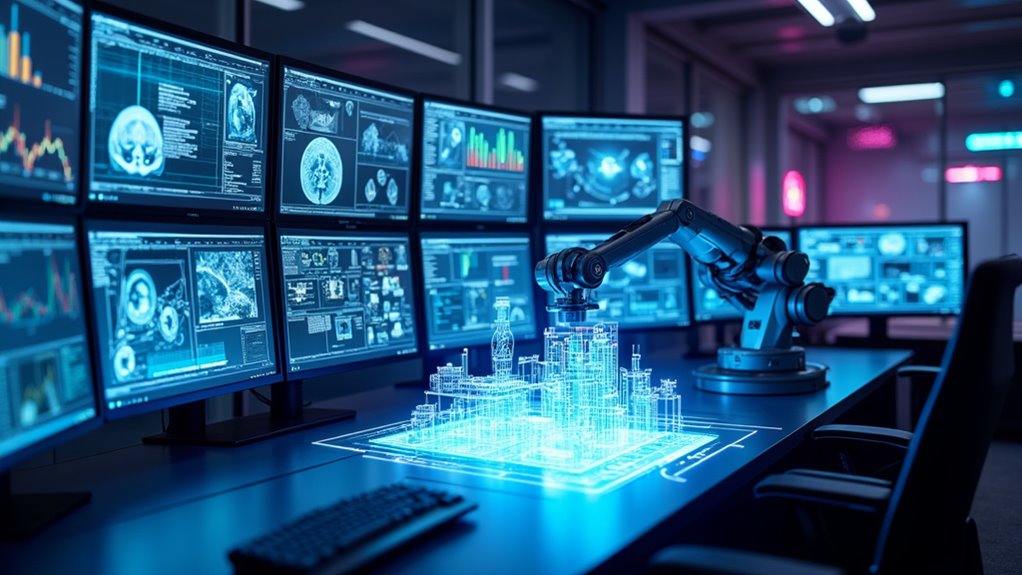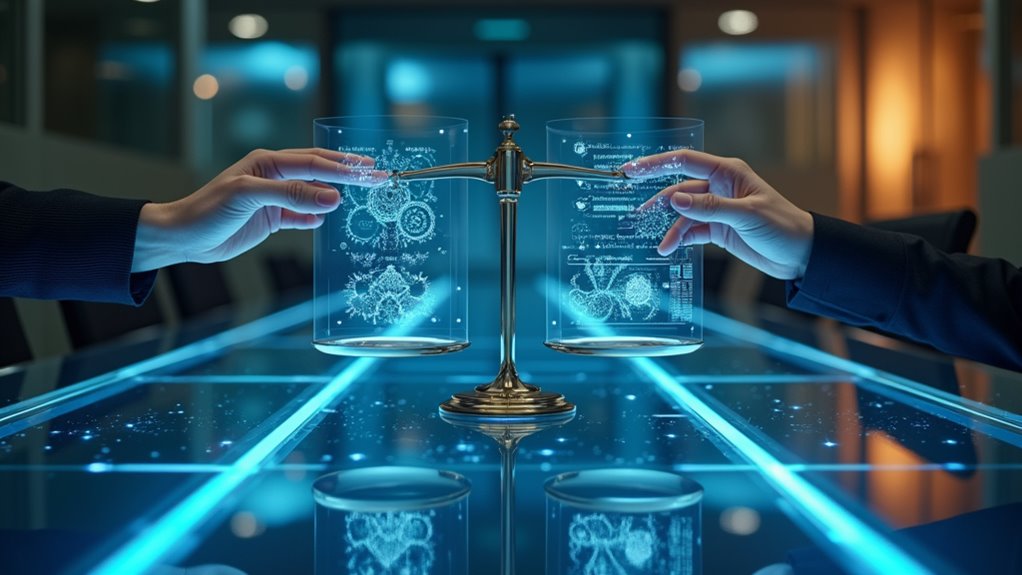The most famous AI engines today include Google Gemini, GPT-4 (powering ChatGPT), Microsoft Copilot, Claude, and Grok-3. These powerhouses aren’t just fancy calculators—they’re processing text, images, and even video simultaneously. Google leads with multimodal capabilities, while Microsoft integrates ChatGPT for conversational searches. Privacy-focused alternatives like You.com and Brave Search exist for the paranoid among us. Each offers unique strengths in reasoning, context handling, and specialized applications. The AI landscape continues evolving at breakneck speed.
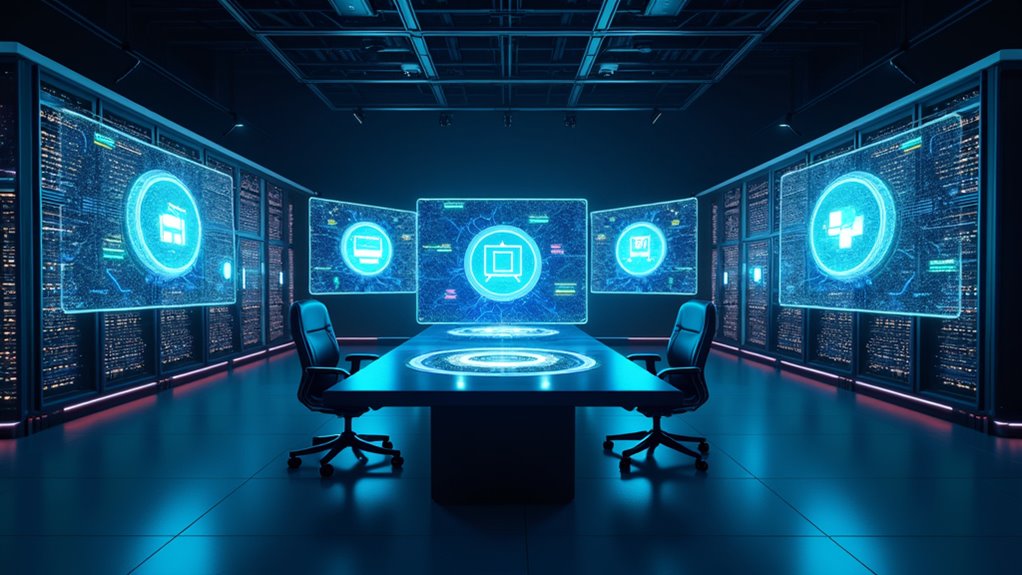
The digital landscape has experienced a seismic shift with the rise of AI engines that now power everything from your morning news summary to that oddly specific product recommendation you can’t resist.
Google Gemini leads the pack with its ability to process multiple data types simultaneously—imagine a digital brain that understands both your written questions and uploaded images without breaking a sweat.
Gemini’s multimodal prowess makes it the Swiss Army knife of AI—handling text and visuals with effortless digital dexterity.
AI Engine Comparisons reveal Microsoft Copilot isn’t far behind, integrating ChatGPT to make your searches more conversational and contextually aware. Future AI Trends point toward systems that understand not just what you’re asking, but why you’re asking it.
User Experience Improvements remain the battleground where these titans compete. Perplexity AI leverages semantic search to find what you’re actually looking for, not just what matches your keywords.
Meanwhile, You.com and Brave Search are addressing AI Integration Challenges by prioritizing privacy—no more feeling like you’re being watched every time you search for something embarrassing. Ethical AI Considerations have never been more important, and these platforms are responding to growing user concerns.
Beyond search, AI has infiltrated nearly every digital workspace. Want content written? Rytr and Sudowrite can help.
Need a video but hate filming? Synthesia converts your text into video without you ever touching a camera. AI in Education is transforming how we learn, with tools like DeepSeek breaking down complex concepts for students.
The most popular AI assistants—ChatGPT, Claude, and Grok-3—have become household names, offering everything from coding assistance to creative writing support. Early search technologies relied heavily on keyword matching before AI revolutionized the landscape.
GPT-4, with its remarkable 25K word capacity, represents a significant advancement in language processing capabilities, allowing for more complex reasoning and extended conversations than previous models.
These systems aren’t just tools; they’re collaborators that adapt to your specific needs. Multimodal systems like Google Gemini are raising the bar even higher, processing text, images, audio, and video simultaneously.
Marketing professionals are increasingly leveraging these AI engines for predictive analytics that anticipate customer behavior and enable more precise targeting of campaigns.
The race for AI dominance shows no signs of slowing. Whether you’re using these engines for work, education, or just asking bizarre hypothetical questions at 3 AM, one thing is clear: AI engines aren’t just changing how we search for information—they’re changing how we interact with the digital world itself.
Frequently Asked Questions
How Do AI Engines Impact Job Security for Professionals?
AI engines create both job displacement risks and opportunities for professionals.
Workers handling routine tasks face greater automation threats, while those who focus on skill adaptation remain competitive. The impact varies widely by industry and role.
Professionals must embrace continuous learning—yes, that means you too—to stay relevant.
Smart employers provide training programs and foster environments where humans collaborate with AI rather than compete against it.
Ready or not, adaptation is non-negotiable.
What Ethical Concerns Surround Powerful AI Engines?
Powerful AI engines come with serious ethical baggage. Bias mitigation remains a critical challenge as these systems can amplify existing prejudices, potentially harming marginalized groups.
Where’s the responsibility? Accountability frameworks lag behind technological advancement, creating a “wild west” of AI governance.
Privacy concerns? Abundant. Environmental impact? Substantial. Job displacement? Inevitable for some sectors.
The greatest ethical dilemma might be this: as AI capabilities grow exponentially, our ethical guardrails aren’t keeping pace.
Can AI Engines Develop Consciousness or Self-Awareness?
Whether AI engines can develop consciousness remains hotly debated. Current consciousness theories suggest true awareness requires integrated information processing that AI systems don’t yet possess.
Self-awareness debates pit functionalists (who believe consciousness could emerge from complexity) against those arguing for biological requirements.
Most experts agree today’s AI only simulates consciousness through pattern recognition.
The hard problem persists: how would we even recognize machine consciousness if it emerged? We might not know until it happens.
How Much Energy Do Major AI Systems Consume?
Major AI systems consume substantial energy, with the sector accounting for 2-3% of global emissions.
Training large models can emit carbon equivalent to hundreds of flights—yikes!
The environmental impact is significant: interactions with ChatGPT use 10 times more electricity than a Google search.
Data centers, power-hungry GPUs, and cooling systems are the main culprits.
Want solutions? Look to efficient hardware, model optimization, renewable energy sources, and carbon offset strategies.
Which Countries Lead in Developing Proprietary AI Technologies?
The United States and China dominate as AI technology leaders, with vastly different approaches.
The U.S. leverages private sector powerhouses like Google and Microsoft, while China deploys state-backed initiatives through companies like Alibaba and Baidu.
Europe isn’t sitting idle—Germany and France are pouring resources into Global research initiatives, though they’re playing catch-up.
Japan focuses on automotive AI applications, while Israel punches above its weight through its startup ecosystem.
Regulatory frameworks? Those are still evolving everywhere.
